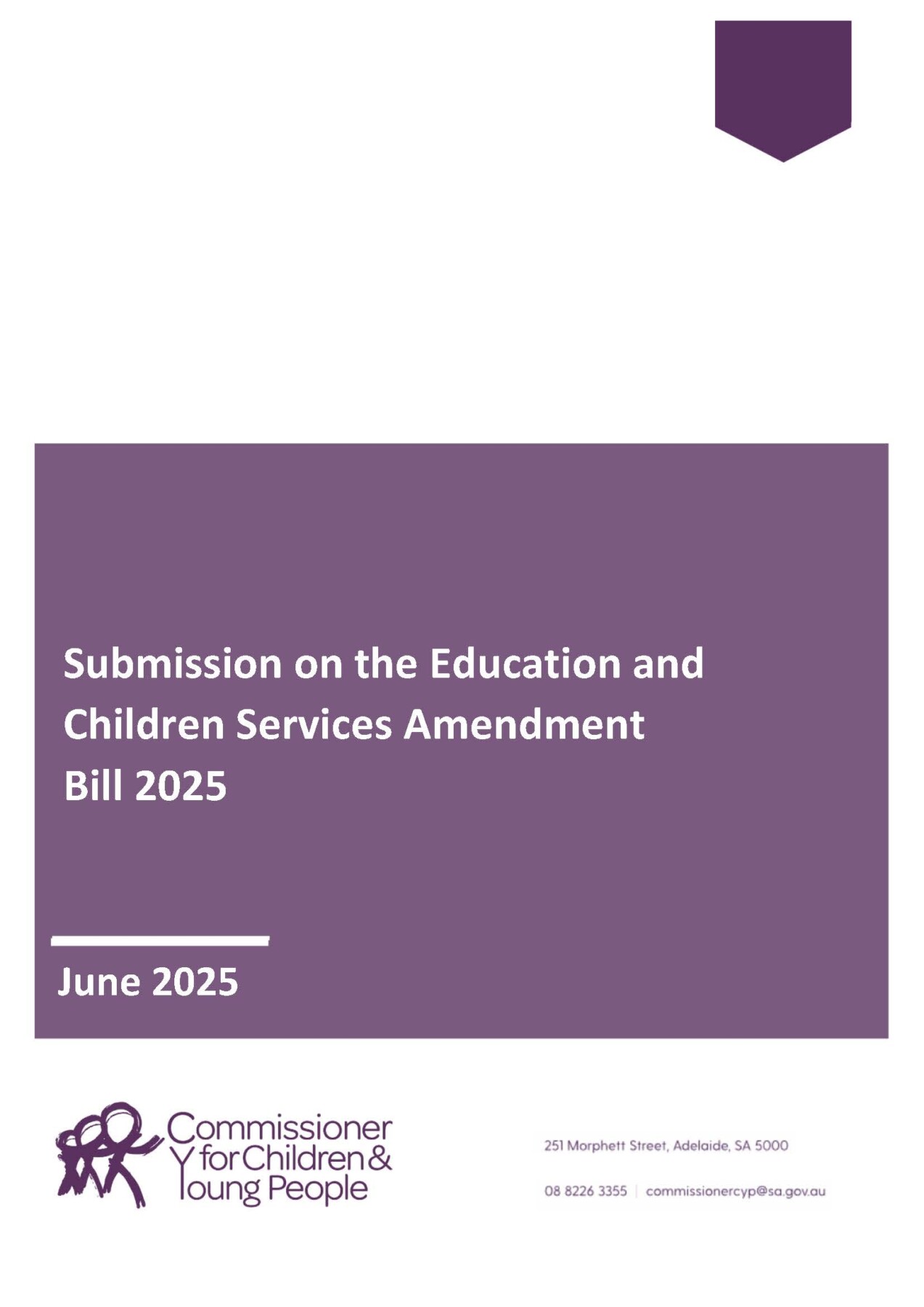Providing feedback on amendments to the Education and Children Services Act 2019 is an opportunity to bring the law in-line with recommendations of the Royal Commission into Violence, Abuse, Neglect and Exploitation of People with a Disability.
Although these amendments appear to focus on children with disability, the Acting Commissioner hopes that when these regulations are finally implemented – particularly in relation to determining exclusions and expulsions – it results in all children are viewed in their full context, not just as to whether they have a disability. However, these amendments do not fully implement the Royal Commission’s Recommendations.
While the Acting Commissioner supports the collection and reporting of consistent and transparent data on the suspension, exclusion and expulsion of students with a disability; it will be very difficult to determine whether outcomes for this group are improving if data for all students is not also published.
The Acting Commissioner therefore highlights a recommendation made in The Blame Game (2020) that “public reporting of the numbers of suspensions and exclusions needs to be disaggregated into school, age, sex, gender, disability status, Aboriginal and Torrens Strait Islander, CALD, health status, other relevant identity and background factors” for all schools.
Other recommendations include:
- Establish an independent review process to enable a parent or supporter of a child or young person with disability to challenge a refusal to enrol the child or young person in a school
- Include a duty for principals to report the repeated use of exclusionary discipline involving a student with disability to an escalation point within educational authorities for independent case management
- Include a robust review or appeals process for students with disability and their families or carers and supporters
- Ensure students with disability have access to educational materials appropriate to their educational and behavioural needs while subject to exclusionary discipline
- Support students with disability to re-engage in education post exclusion

